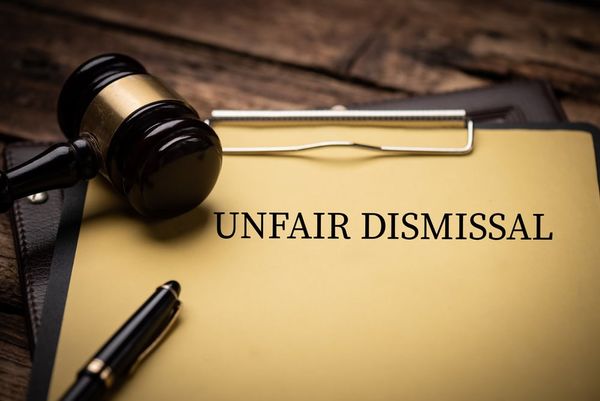Does the ending of an employment contract always end the employment relationship?
Two recent unfair dismissal cases explore the interaction between the employment relationship and the employment contract, and whether employment relationships can continue once the contract ends.
Ending of a fixed-term contract
To make an unfair dismissal claim under the Fair Work Act 2009 (Cth), the applicant must have had their employment terminated on the employer’s initiative. This won’t be the case if the applicant’s employment ended when their contract of employment for a specified period of time ended.
In Nasr v Mondelez Australia Pty (2021), the applicant was employed under 8 consecutive fixed-term contracts over 2.5 years. The contracts ranged in duration from 1 to 12 months. Employment ended with the cessation of the most recent contract.
The applicant argued that the cessation of the contract did not in itself end the employment, and the termination of the employment was at the employer’s initiative. On this basis, the applicant argued he could make an unfair dismissal claim. He relied on the principles identified by the Fair Work Commission (FWC) Full Bench in Khayam v Navitas English Pty Ltd (2017), namely that, despite the expiry of a fixed-term contract, there is still a possibility the employment relationship would continue because the contract did not reflect the overall reality of the agreement between the parties. This might be because, for example, the employer had made representations that go beyond the terms of the contract, or the fixed-term contracts were the standard form used for administrative convenience and were not indicative of the actual circumstances of the employment.
The FWC ruled that the principles from Khayam did not assist the applicant in this case. The FWC found:
- the series of contracts were based on the operational requirements and business needs of the employer, and represented a genuine agreement by the parties that the employment relationship would end upon the expiry of each of the contracts;
- the terms of each contract were clear and unambiguous, and clearly stated the time for the end of employment;
- the applicant had meetings with his manager between each contract, during which it was explained to him why contracts were for a particular length, and that there was no guarantee of further employment beyond the contract term; and
- upon expiry of the 8th contract, the employment relationship ended by agreement of the parties, not at the employer’s initiative.
Ending of a permanent employment contract
In Rankin v ASG (2021), the FWC sought to determine whether the applicant’s service was broken by a resignation as a full-time employee, followed by a period of 5 days in which the employee neither worked nor was paid, before commencing work as a casual. This was important in determining whether the employee had served the minimum statutory employment period to be eligible to make an unfair dismissal claim.
The FWC ruled that on the day of the employee’s resignation as a full-time employee, the employee reached agreement with the employer for her to immediately be placed on the casual roster and that she would be offered shifts as required and as she could accommodate. Therefore, the employment relationship was not broken. This is despite the contract for full-time employment coming to an end and the employee not actually working as casual until 5 days later.
The fact the employer did not move immediately to pay out the employee’s accrued unused leave entitlements supported the finding that an agreement had been reached for the employment relationship to continue.
The FWC also noted that the resignation made no reference to when it was to take effect, or whether notice was either being given or required by the employer, and was made in an environment of being upset at the rejection of her desired full-time roster change and the pressure to sign a fresh full-time contract by a deadline.
The FWC concluded the employee’s service was unbroken based upon the agreement she reached with the employer on the day of resignation for the employee to be continued to be employed by the employer as a casual.
The FWC observed that in most cases, a resignation does break an employee’s continuous service for the purposes of FW Act rights and entitlements, even if the employee is re-employed at a later date. However, there are clearly circumstances, such as in this case, where a resigning employee continues to be employed by the employer for the purposes of the FW Act, because the employment relationship continues in some varied or new form, or the parties agree expressly or by conduct to maintain continuity of service. This matter was one such case where the employment relationship continued by agreement in a varied form.
Get the latest employment law news, legal updates, case law and practical advice from our experts sent straight to your inbox every week.

